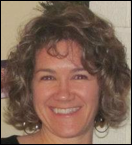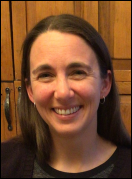Faculty
Department Head: Dr. Glenys Gibson
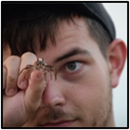 Ph. 902-585-1195 Room 100 |
Garett Allen, Ph.D. My research program focuses on understanding how environmental challenges influence the physiology of aquatic organisms, especially marine invertebrates. Our primary focus is understanding the mechanistic reasons why deviations from homeostasis arise and how compensatory action proceeds. Addressing these questions incorporates whole animal and isolated organ experimentation, pharmacological assays, molecular techniques, and microscopy. These efforts ultimately serve to better understand how aquatic organisms respond to physiological challenges that arise from changing climates and industrial practices. Courses |
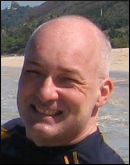 website | email Ph. 902-585-1873 Room 410 |
Trevor Avery, Ph.D., P.Stat. I research aquatic systems, and collaborate through biostatistics on other aquatic and terrestrial ecological projects. Currently, my students and I study population dynamics, conservation, stewardship and recreational angling of Striped Bass and two skate species (Winter and Little Skates), American Eel habitat use and population dynamics, introduced species (Smallmouth Bass and Chain Pickerel) and their effects on community structure using long-term datasets, and various smaller projects including lynx prey habitat use, squid and lady crab demographics, and the application of local ecological knowledge to conservation and management. As a biostatistician, I seek higher understanding in all things numerical. Courses |
 website | email Ph. 902-585-1162 Room 312 |
Melanie Coombs, Ph.D. I am an immunologist who investigates how the immune system responds to microbes and cancer. My research interests include the investigation of mechanisms underlying the anticancer and immunomodulatory effects of natural products such as phytochemicals and host defense peptides. A primary question that my research addresses is what are the benefits of modified host defense peptides and phytochemicals on colorectal cancer, breast cancer, and/or immune cell function? Courses |
|
|
Hélène d'Entremont, M.Sc. MLT I'm Hélène (pronounced L.N.). I develop and run labs for Microbial Biodiversity, Cell & Molecular Biology, and Applied & Environmental Microbiology. I enjoy the creativity involved in designing new and relevant labs. Courses |
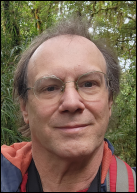 website | email Ph. 902-585-1156 Room 432 |
Russell Easy, Ph.D. I am a comparative biologist with broad research interests. My experience is in the field of molecular biology exploring gene signatures and proteins in vertebrate and invertebrate species. Other projects include examining the effects of parasitic manipulation at the molecular level and phylogenetic determinations of parasites. The focus of my lab is to identify changes in target molecules in animals in response to environmental stressors using advanced molecular and proteomic methods. I constantly strive to answer the question, "Stress, what is it good for?" Courses BIOL 4683 Biology of Cancer
|
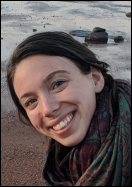 website | email Room 335 |
Laura Ferguson, Ph.D. I am an integrative biologist interested in how host-microbe interactions shape insect resilience in our changing world. I focus on both host-pathogen encounters as well as insect relationships with their microbiomes. Our lab has a particular interest in the winter biology and temperature-dependence of these interactions. Currently we are focused on mosquitoes and ticks, working towards understanding how their ability to resist and transmit disease will shift with climate change. Courses |
 Ph. 902-585-1821 Room 310 |
Wasundara Fernando, Ph.D. I am a Cancer Biologist and I investigate the anticancer potential of novel, targeted therapeutic agents using cell and animal models. My research is focused at understanding the mechanisms of cancer progression, metastasis, recurrence and development of chemo-resistance. I study pharmacokinetics of novel drug candidates using mice to understand proper dosing and metabolism of drugs. Courses: |
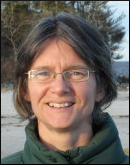 website | email Ph. 902-585-1250 Room 108 |
Glenys Gibson, Ph.D. I am a developmental biologist that investigates developmental plasticity, epigenetics and regeneration. We work primarily with marine invertebrates and especially polychaetes, small animals that are abundant in the Minas Basin and have a rich diversity in of developmental patterns. We use a variety of approaches including microscopy (e.g., confocal, Scanning Electron Microscopy), histology and larval ecology. We are particularly interested in how maternal environment influences the development of young. Courses |
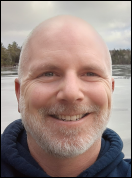 Ph. 902-585-1424 Room 331 |
Matt Hazel, M.Sc. I lecture and run the labs for the Human Physiology & Anatomy courses. These courses focus on the human body, as we cover the anatomy and physiology of all its systems. Courses |
 Room 108 |
Fouzia Haider, Ph.D. I am an eco-physiologist with research interests in bioenergetics, mitochondrial physiology, and stress physiology across aquatic and terrestrial organisms. My work focuses on how environmental stressors, such as temperature, salinity, and oxygen availability, shape metabolic processes, energy use, and physiological performance. I am particularly interested in linking molecular and cellular mechanisms to whole-organism function and ecological outcomes. In my teaching, I emphasize inclusive, hands-on laboratory experiences that help students connect core biological concepts to real-world systems. Courses |
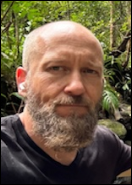 website | email Ph. 902-585-1314 Room 104 |
Kirk Hillier, Ph.D. My lab's research is focused on a fundamental understanding of olfactory processing, and the relationship between odours and an animal’s behaviour. More importantly, we look at the very basis of insect pheromone processing, developmental control of pheromone perception and related neuroanatomy, and the bases of physiological coding of odour blends within the insect brain. This includes investigations of learning and memory, and the effects of pharmacological agents on the insect nervous system. Insights from these studies are ultimately applied to the management of insect pests of forestry and agriculture. Courses |
|
|
Jennifer Kershaw, M.Sc., B.Ed. Along with the museum committee, I help manage the Acadia Wildlife museum. I also instruct second year lab courses and a third year botany course. My background is in land reclamation, rehabilitation and restoration, rare plant ecology, and education. Courses |
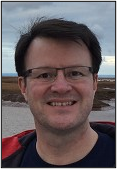 Ph. 902-585-1328 Room 408 |
Juan Carlos López, Ph.D. I am a soil microbial ecologist who studies the role of the microorganisms that dwell in and around the plant roots. Currently, I am the Assistant Dean of Equity Diversity and Inclusion for the Faculty of Pure and Applied Science at Acadia and the Director of Teaching and Learning for the Maple League of Universities, a consortium we form with three more universities in Eastern Canada. With students as leaders and collaborators, I have created and modelled high impact practices for student success centred around mental health, as well as decolonization and reconciliation initiatives that have impacted the way we think, talk and learn about Mi’kmaw knowledge in our institution and beyond.
|
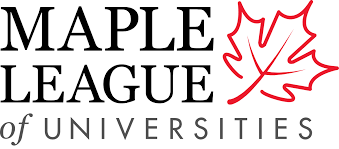 |
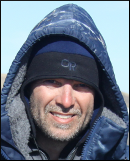 website | email Ph. 902-585-1798 Room LL40 |
Mark Mallory, Ph.D. My interests are diverse, but centre around the ecology and health of coastal habitats. Most of my lab’s research is undertaken in the Canadian Arctic (Nunavut) or coastal Nova Scotia, with a particular focus on using birds to assess the condition of marine and coastal environments. Two particularly fertile areas of investigation are anthropogenic effects on coastal wetlands, and using telemetry and paleo-environmental techniques to link nutrient and contaminant transport from marine to coastal environments. Courses |
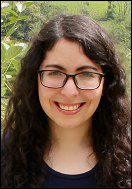 website | email Room 433 |
Zoë Migicovsky, Ph.D. I work at the intersection of plant agriculture and data analytics, integrating plant biology with computational tools to investigate biological variation in crop species. In particular, my lab focuses on perennial fruit crops and their wild relatives, such as apples and grapes. My research program leverages crop diversity, including genomic and trait data, to improve our understanding of plant biology and make data-driven decisions in both management practices and plant breeding. Courses |
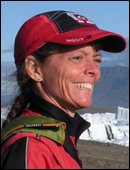 website | email Room 430 |
Zoe Panchen, Ph.D. I am a plant ecologist interested in how plants respond to environmental change. My main focus is understanding how climate change impacts plant phenology, reproductive success and community composition. Our lab conducts research in the Canadian High-Arctic which is experiencing some of the most dramatic changes in climate. With the increase in frequency and severity of climate extremes, we are particularly interested in studying the effects of climate extremes on plants. Courses |
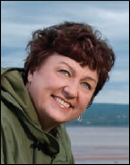 Ph. 902-585-1732 507 Patterson Hall |
Anna Redden, Ph.D. My expertise and research interests are in coastal and marine ecology and have included a diverse range of projects undertaken with students and research colleagues in eastern Canada and Australia. They span plankton dynamics, saltmarsh communities, benthic biodiversity, invasive species (algae and tunicates), fish ecology, and acoustic detection of marine mammals and fish movements at high flow tidal energy development sites. Since 2009, my research has focused on the use of acoustic technologies to assess risk of tidal turbine interaction with marine biota (largely fish and harbour porpoise) at the FORCE turbine test site in Minas Passage, Bay of Fundy. Courses |
 |
 Room 224 |
Kendra Sampson, M.Sc. My past research includes coastal ecology and blue carbon storage in our Bay of Fundy salt marshes. I currently explore plant-fungal interactions with special focus on arbuscular mycorrhizal fungi in coastal and sand barren flora. I am also a Propagation Specialist and oversee several projects/research occurring in the Acadia Tissue Culture Lab at the K.C. Irving Environmental Science Centre. Projects range from aeroponic vertical farming to in vitro micropropagation and cryopreservation. Courses |
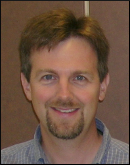 website | email Ph. 902-585-1400 Room 334 |
Todd Smith, Ph.D. My research program involves investigating the coevolution of protozoan parasites and their vertebrate and invertebrate hosts. This research integrates aspects of morphology, physiology, ecology, evolutionary biology, cell biology and immunology to shed light on how the cellular interactions between parasites and host cells drive the evolution of parasite life cycles and the immune response of the host against these eukaryotic invaders. My teaching interests are varied, but all of the courses that I teach, including Microbial Biodiversity, Eukaryotic Microbiology and Parasitology, reflect aspects of my research interests. Courses |
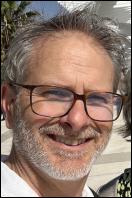 website | email Ph. 902-585-1391 Room 434 |
Don Stewart, Ph.D. I’m an evolutionary biologist and I use DNA sequence data to study processes of molecular evolution. I am particularly interested in the unusual system of "doubly uniparental inheritance" of mitochondrial DNA in bivalves, in patterns of molecular evolution in shrews. |
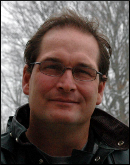 website | email Ph. 902-680-5035 ACER |
Mike Stokesbury, Ph.D. The focus of my research program is to quantify how anthropogenic disturbances in coastal ecosystems impact the spatial behaviour of fishes covering small to large spatial and temporal scales, may inflict mortality, and how such knowledge can be used to mitigate the negative effects of such activities on fish populations. Courses |
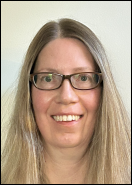 Ph. 902-585-1870 Room 412 |
Kinga Vojnits, Ph.D. I am a stem cell biologist and neurodevelopmental toxicologist interested in how environmental exposures, such as micro- and nanoplastics, affect brain development and contribute to neurological disease. My research uses human stem cell–based models to investigate how these exposures alter brain function and increase the risk of conditions such as Amyotrophic Lateral Sclerosis (ALS). By developing human-relevant laboratory models, my work bridges basic discovery with human disease mechanisms and environmental health risk at the intersection of neuroscience and environmental toxicology. Courses |
 website | email Ph. 902-585-1333 Room 435 |
Allison Walker, Ph.D. I study the biodiversity and ecology of coastal and marine fungi, including endophytes. Research in my lab includes collecting in seagrass, salt marsh, intertidal, and Acadian forest habitats and traditional culture-based and microscopic identification of fungi, combined with modern molecular phylogenetic and metagenomic methods. Recent collaborative projects are exploring the roles of fungi and carbon sequestration in salt marshes, endophytes of native plants, vineyard microbiomes, and hemlock-associated fungi in Kejimkujik National Park and National Historic Site Courses |
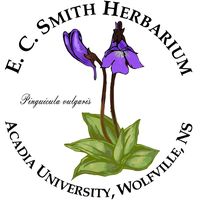 |
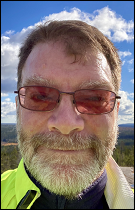 Ph. 902-585-1295 Room 106 |
Brian Wilson, Ph.D. My research program focuses on the role of relaxin family peptides and their receptors in the protection of neural tissue under ischemic stress. Courses |
Professors Emeriti
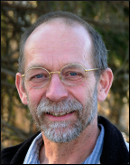 website | email |
Soren Bondrup-Nielsen, Ph.D. My research interests are broad ranging from natural history of beetles and birds in forested and agricultural landscapes to population studies focusing on movement of the Forked fungus beetle. I believe in active learning. What I mean by that is involving the students in discussions, debates, presentations, and writing critiques and essays. This way students have to use their heads while the course is being taught. |
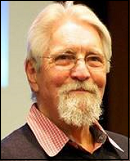 |
Graham Daborn, Ph.D. My research interests centre around the structure and productivity of estuarine biological communities, especially those of Bay of Fundy. Emphasis is placed upon holistic, multidisciplinary studies of estuaries, the impacts of barriers and tidal power development, and the role of local communities in resource conservation and environmental management of coastal ecosystems. |
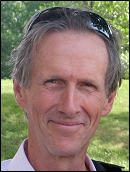 |
Tom Herman, Ph.D. My students and I explore the interface between humans and biodiversity - from the dynamics and conservation of small isolated populations, to the role of science in managing protected areas, to the impacts of globalization on biodiversity, and the role of citizen science and community engagement in recovery of species-at-risk. Most of our recent work focuses on endangered turtles and snakes in the Southwest Nova Biosphere Reserve. |
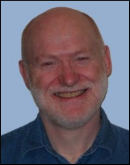 |
Ed Reekie, Ph.D. I am a plant ecologist with particular interests in population biology and eco-physiology. My courses emphasize the development of critical thinking skills and utilize the many interesting local ecosystems through field trips and the use of local materials and examples. I conduct research in a variety of areas including: the impact of rising atmospheric carbon dioxide levels on plant growth and development, the factors limiting the distribution and abundance of rare and endangered species, plant-insect interactions and the physiological basis for life history variation in plants. |
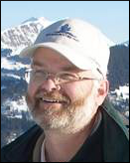 website | email Ph. 902-585-1354 |
Dave Shutler, Ph.D. My interests centre on how stressors affect organisms' physiology and reproductive ecology. Among the stressors Team Shutler works on are pesticides, heavy metals, plastics, low-quality nutrition, and parasites. My lab and I work primarily with birds (mostly tree swallows) and honey bees, but we make occasional forays into other systems. My publication list provides more detailed context. |

